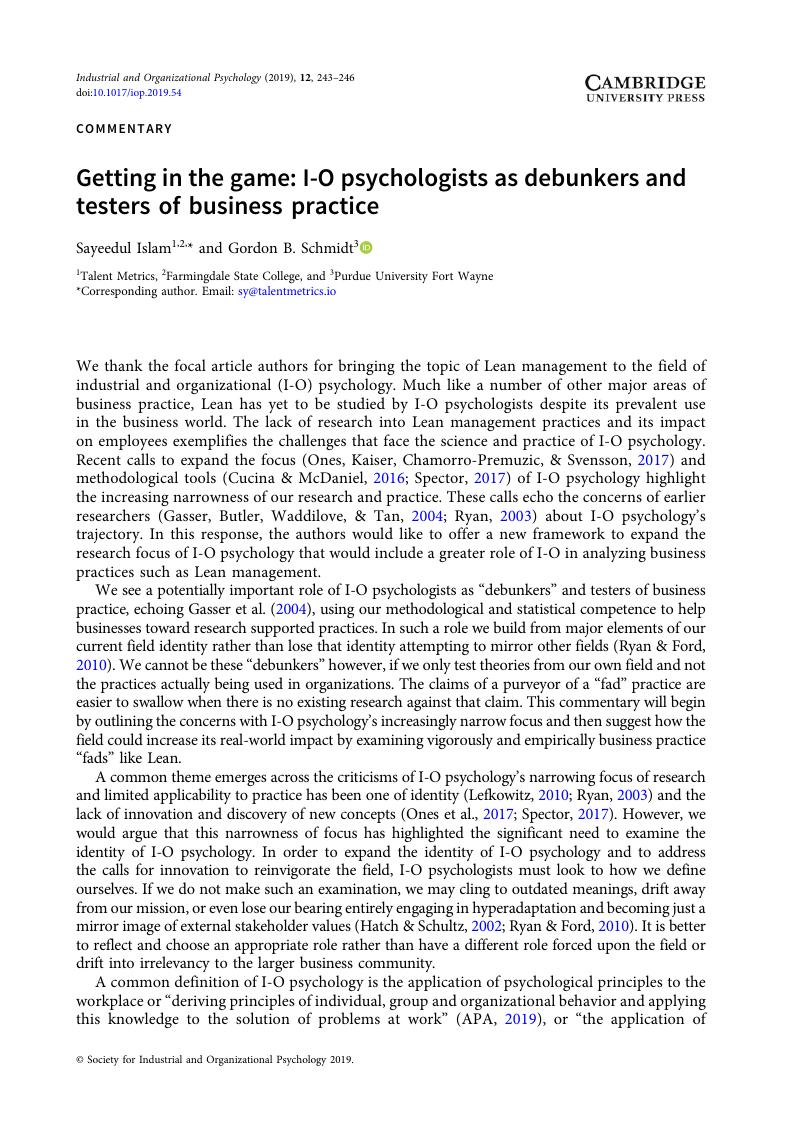Crossref Citations
This article has been cited by the following publications. This list is generated based on data provided by Crossref.
Woo, Vivian A.
Schmidt, Gordon B.
Aiken, Juliet R.
Islam, Sayeedul
Albeg, Azaria C.
DePatie, Thomas P.
Gelesko, Gabrielle
and
Voss, Jacquelyn
2021.
Where no one has gone before.
Industrial and Organizational Psychology,
Vol. 14,
Issue. 1-2,
p.
55.



